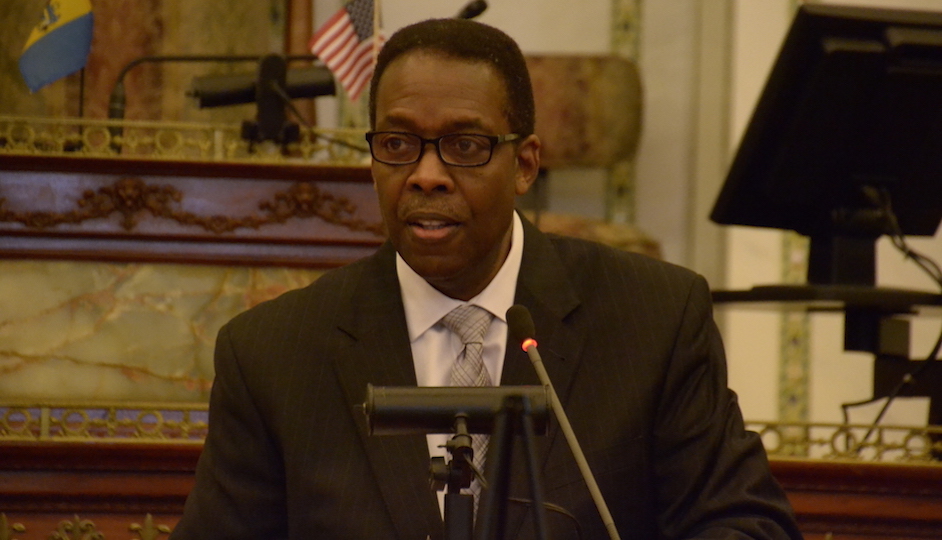3 Arguments For, and 3 Against, Darrell Clarke’s Alternate School Funding Plan

Courtesy of City Council’s Flickr
City Council President Darrell Clarke laid out a plan last week to help fund Philadelphia’s cash-starved schools: He wants to sell liens on commercial properties, which he says could raise “millions of dollars” a year.
Clarke also suggested lien sales would give residents more faith in the city’s tax collection efforts. Currently, Clarke said, “This city cannot say with full confidence that it is doing everything it can to collect from those who owe.”
Tax lien sales have both major pros and cons. As the debate on education funding moves forward, let’s consider a few of them. First, the potential upsides:
- It could mean fast cash for the city government.
- It could also mean reduced personnel costs for the city. As Jon Geeting explained in Next City, “Paying city employees to do collections involves more overhead cost than outsourcing the job to an outside company.”
- Kevin Gillen, chief economist of Meyers Group, said cities in New Jersey have used tax lien sales to great effect. Here’s how it works there, he said: After a municipality sells a lien to a private collections company, it contacts the delinquent taxpayer and tries to convince them to sign up for a payment plan. “‘You have to pay something,'” Gillen said the city tells property owners, “‘and if you don’t, they’ll take your house.’ So you’ll be highly motivated to pay.” Essentially, the city acts as the “good cop,” while the collection company acts as the “bad cop.” It’s important to note that, for now, Clarke is calling for tax liens on commercial, not residential, properties. Still, Gillen said, the New Jersey method has delivered results: “Do you know what the collection rate is for Camden? Ninety-eight percent. Do you know what it is for Newark? Ninety-seven percent.”
On the other hand, there are plenty of possible downsides to lien sales:
- Geeting reported that tax lien purchasers “tend to delay foreclosures, which leads to an increase in complaints about problem properties and deferred maintenance.”
- Right now, Philadelphia doesn’t hawk liens. Mark McDonald, a spokesman for Mayor Michael Nutter, said that is partly due to the city government’s past experience with a bond sale involving liens in the 1990s. It was a mess: According to PlanPhilly, the city “bundled 33,000 tax liens and, through a bond issued by the Philadelphia Industrial Development Corporation, collected $106 million for the city and schools in one shot” under then-Mayor Ed Rendell. But collection agencies found it difficult to force some tax deadbeats to pay, and the city eventually defaulted on bonds worth $46 million.
- Other cities have had negative experiences with lien sales. The Washington Post found that in D.C., a tax lien-sale program had “morphed into a predatory system of debt collection for well-financed, out-of-town companies that turned $500 delinquencies into $5,000 debts.” An investor foreclosed on the home of one man who owed just $134 in property taxes. In Philadelphia, though, there are restrictions in place that should prevent such a disaster from happening here: The city cannot sell liens less than $1,000. (Clarke wants to remove this restriction, but for commercial properties only.) Collection companies’ interest rates are also capped at 10 percent, while their penalty rates are capped at 5 percent.
A hearing on Clarke’s proposal has not yet been scheduled.
Follow @HollyOtterbein on Twitter.


